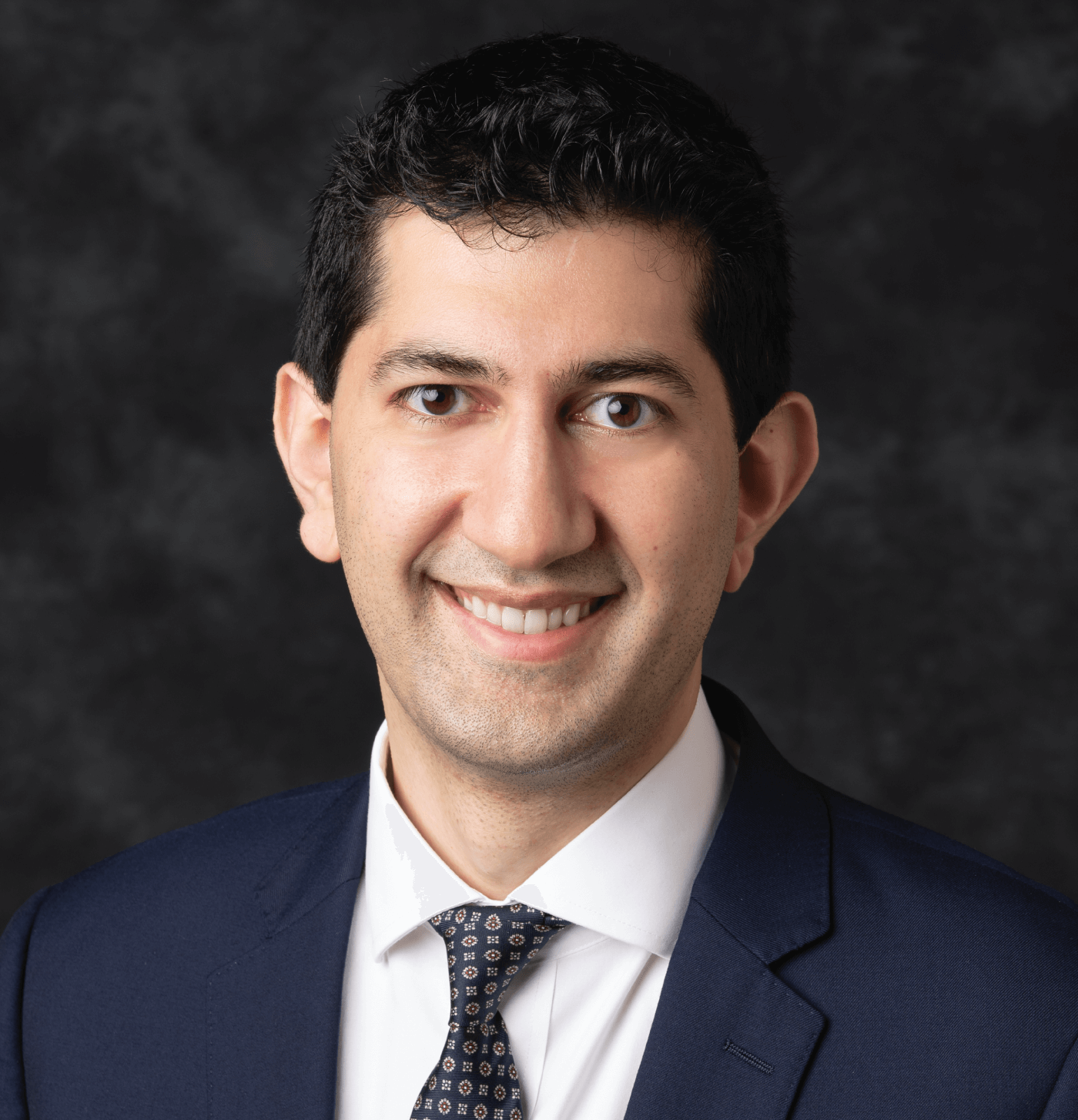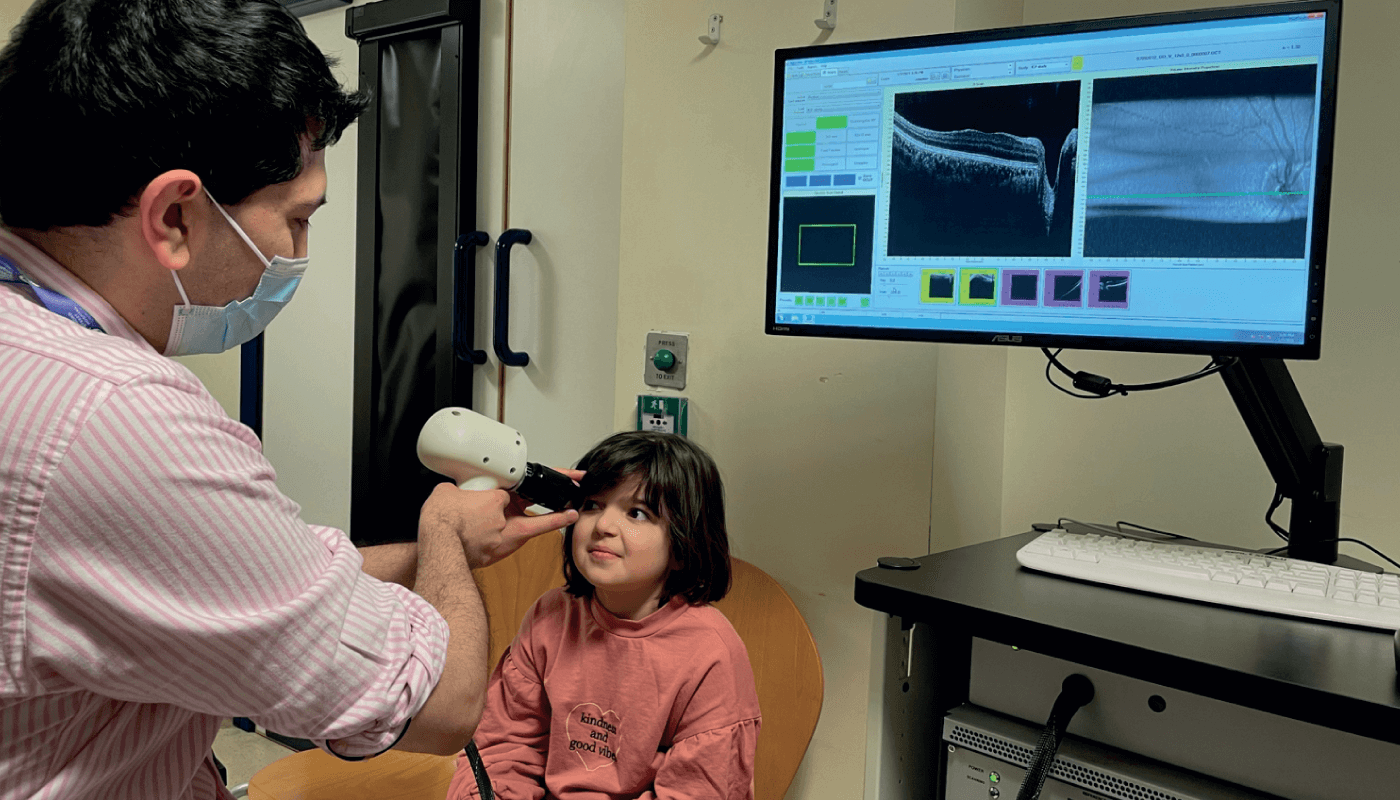
What inspired you to write your book: A Practical Guide for Aspiring Ophthalmologists?
I have always loved teaching. In recent years, I have enjoyed teaching aspiring ophthalmologists and, to my delight, many have successfully secured their ophthalmic specialist training posts, which is our British equivalent of “matching” to an ophthalmology residency! These residents, along with my peers, strongly encouraged me to write this book so that this teaching and advice is more widely accessible.
It was a long and challenging process, taking one year from inception to publication, but I am thrilled to see the book published at last, and already ranking top of the Amazon ophthalmology bestseller list! I hope it helps many more aspiring ophthalmologists achieve a brilliant and fulfilling career.
What was your personal experience of the ophthalmology training application process? Would you make any improvements to the current system?
Given the immense popularity of ophthalmology as a specialty, the application process is extremely competitive. I was most fortunate to discover ophthalmology as a career option relatively early on in medical school, which gave me a head start. I learned the fundamentals of clinical ophthalmology by spending a lot of time in the department. I showed a lot of enthusiasm to learn more, so a number of consultants offered me many opportunities such as audits, research projects, teaching sessions to organize, all of which earned a lot of “points” for my future application. In essence, I brought extra enthusiasm and a “Completer-Finisher” attitude! However, even if the decision to pursue ophthalmology is made later on, it is still possible to secure a training post – provided one takes the right steps and prepares well.

I encountered both direct and indirect challenges during this process. Direct challenges included the highly competitive scoring system for the portfolio, the Multi-Specialty Recruitment Assessment (MSRA), which tests general medical knowledge not limited to ophthalmology, and the unpredictability of interview station topics. Indirect challenges included balancing my medical studies and foundation training with my interest for ophthalmology, seeking ethical approval for projects, securing funding to attend conferences, finding time to meet busy supervisors, and maintaining a good work-life balance.
In an ideal world, I would like to see more ophthalmology training posts created. This would enable more aspiring ophthalmologists to enter this fantastic specialty and help to meet the growing demand for eye care provision, particularly due to our aging population with increasingly complex care needs.
What is the best way to boost your score across all sections?
I would say the best thing you can do is develop a genuine enthusiasm for ophthalmology – and then get organized, work smart, and spend time with an ophthalmologist or ophthalmology department. Working smart involves being strategic with your time, setting realistic timelines, and communicating effectively. Make lists of the portfolio sections, interview scenarios, revision topics, and work through things systematically and well in advance to boost your chances of success.
Most ophthalmologists tend to be friendly people and will do what they can to help you. A small number may go the extra mile and offer to take you under their wing, mentor you, and really help you flourish. That’s how you can unlock the majority of the “points” in the application – but you will only get all these opportunities by being organized, showing up, and making your face known.
Ophthalmologists can be found in the eye department, via their secretaries, in their offices, at local or regional ophthalmology teaching sessions, or at ophthalmology conferences. They are more likely to respond to emails if they have met you face-to-face beforehand – even briefly – and if your email lands in their inbox at the right time, such as during their admin sessions. Secretaries can be extremely helpful with this sort of advice, so aim to build good relationships with them. I appreciate this is all challenging with the current COVID-19 restrictions, but even if your only initial opportunities include attending the ophthalmology departmental virtual teaching sessions or local conferences, make sure you have your camera on to at least make your face known.
In summary, prepare early, reach out to people who can help you, show genuine enthusiasm, and the opportunities will come your way. And don’t forget to enjoy the journey!

Why is ophthalmology one of the most popular and rewarding specialties in medicine?
Ophthalmology continues to deliver incredibly high patient and doctor satisfaction. It offers an exciting mix of medicine and surgery, with a favorable work-life balance.
The eye is a fascinating organ which, uniquely, can be directly examined without breaching its integrity. It can also provide vital information about a patient’s general health – indeed, the developing field of oculomics involves identifying ocular biomarkers of systemic disease, with particular use of non-invasive imaging methods, such as optical coherence tomography (see Figure 1). Ophthalmology is also at the forefront of health research across many disciplines, including artificial intelligence, gene therapy, stem cell research, and more.
In the UK, I have found the ophthalmology community to be warm, welcoming, and tightly knit, with pleasant colleagues and working conditions. Although the clinics tend to be heavily booked, ophthalmologists are well supported by the wider team and advanced technology. Due to the sessional nature of the work, ophthalmologists have opportunities to divide their time to pursue other interests such as teaching, research, management, private and voluntary work, among other things. With a huge variety of sub-specialist interests within ophthalmology, there really is something for everyone.
Does the book include advice or opinions from other ophthalmologists with different experiences?
Yes – I have sought advice from peers and seniors throughout my journey, from getting into ophthalmology myself to writing this book. And my colleagues provided their valuable opinions on my book prior to its publication. I must especially thank I. Christopher Lloyd, Head of Ophthalmology at GOSH, for reviewing the book and writing the foreword, plus Dr Hussein Almuhtaseb for his stunning fundus images.
I also consulted the Royal College of Ophthalmologists’ official guidance available online, but I must note that my book does not represent nor is it affiliated with the Royal College of Ophthalmologists – it is simply my humble attempt to support aspiring ophthalmologists. The book does not contain any shortcuts or secret inside information, rather it provides guidance and strategies to prepare a competitive application using a systematic approach.
What is the most important thing to know when securing an ophthalmic specialist training post?
It takes much longer than you might imagine to prepare a competitive application. This applies to all aspects of the recruitment process, from the MSRA to the portfolio and interview. Therefore, it is important to prepare early and prepare well.
In recent years, the UK’s Royal College of Ophthalmologists has put more emphasis on the MSRA. Ample time should be invested in preparation for it to achieve a strong score, as this determines whether a candidate is shortlisted for interview, and contributes to their overall score for ranking.
Depending on the candidate and their career background, it can take more than a year to develop a strong portfolio covering all the sections, including commitment to specialty, presentations, and publications. The interview also requires ample time for preparation, as so many possible scenarios could come up. It is always better to be overprepared!

The UK’s Ophthalmic Padawans
How does the UK ophthalmology training system work – and how does this compare with other countries?
I’ll start by summarizing the system in the UK – but please bear in mind this is the abridged and simplified version.
Ophthalmology training and recruitment in the UK is governed by the Royal College of Ophthalmologists, which is essentially a Jedi council for ophthalmologists. Full details can be found by browsing their resources online.
UK medical school graduates must complete a compulsory two-year Foundation Program (Internship) before they can enter Ophthalmic Specialist Training, which lasts seven years. The training curriculum set by the Royal College of Ophthalmologists is very broad and comprehensive, featuring rotations through all the major subspecialties, plus dedicated surgical training. There is currently a minimum requirement of 350 cataract operations to successfully complete training, but the new curriculum will be introduced in the near future and the numbers may change. Surgical training requirements apply to all residents, except a small minority training in “medical ophthalmology,” which is delivered via a completely separate route.
Four difficult exams (written, practical, and oral) must be passed to become a Fellow of the Royal College of Ophthalmologists (FRCOphth) – this is required to complete training. Upon completion of training, one can join the specialist register and apply to become a Consultant. Like Jedi masters, Consultants are powerful beings who have an encyclopedic knowledge of eye disease, can use the force to restore vision, and have a sixth sense that tells them when you aren’t paying attention in the departmental virtual teaching... It appears that the UK system is typically longer than that in other countries, with a more demanding sub-specialist curriculum. Other countries may provide shorter training as standard to produce more general ophthalmologists, with opportunities to complete sub-specialist fellowships to develop more specialized skills and knowledge, including surgical skills. Ophthalmology seems to be a competitive and popular specialty universally.
Who can benefit from the advice given in the book?
It is primarily written for applicants to UK-based ophthalmology training; however, a lot of the content is broadly applicable and helpful for med students/doctors from other countries who are interested in an ophthalmic career. For example, the book contains clinical knowledge exercises covering common and important ophthalmic conditions and systemic conditions manifesting in the eye, ophthalmic CV boosting and careers advice, critical appraisal, communication skills, audit and quality improvement, presenting, publishing, prizes, and more.
My book hopefully fills a gap in the UK market for an up-to-date print book for aspiring ophthalmologists – a systematic approach to the application and interview is provided with practice stations and solutions, plus high-quality clinical images. To my delight, it is already proving popular amongst aspiring ophthalmologists. Of course, there are countless other fantastic print books and e-books in the field of ophthalmology and all its subspecialties.
Which movie provides the best analogy for your book? Is the application process described within its pages more like The Lord of The Rings (extended cut), The Revenant, or Rocky – or does it have a more coming of age feeling like Star Wars: The Force Awakens or A Star Is Born?
It’s funny you should mention this. Back in 2009, I was on holiday in Philadelphia, US, which is where I found out I was going to medical school at the University of Southampton. To live out my childhood dream, I ran up the Rocky steps outside the Philadelphia Art Museum, and did my own Rocky celebration. Ten years on, in 2019, I was invited to deliver the Grands Rounds lecture as a Visiting Scholar to the Children’s Hospital of Philadelphia. As you can see in the photos (see Figure 2), not much has changed! It’s difficult to say which movie analogy best describes my book, but Rocky clearly played a part in my overall journey!
If you could give your younger self one piece of advice, what would it be?
Don’t be afraid to reach out and ask for help. Ophthalmologists tend to be friendly people who are usually willing to help any enthusiastic student or junior doctor expressing genuine enthusiasm for ophthalmology. What’s the worst that could happen? They say no, the project doesn’t work out, or your paper gets rejected. Realize that every experience is a lesson – reflect, stay positive, and learn to bounce back. What’s the best that could happen? You build good relationships with the right people who want to see you succeed, and you enter a positive cycle of positive thinking, positive results, experiential learning, and achievement. The sky’s the limit!
And if you could distil the book down to one key message?
By taking the right steps and preparing well, you too can achieve a fantastic and fulfilling career in ophthalmology.
References
- SR Rufai, “A Practical Guide for Aspiring Ophthalmologists,” World Scientific Publishing Co: 2021.
